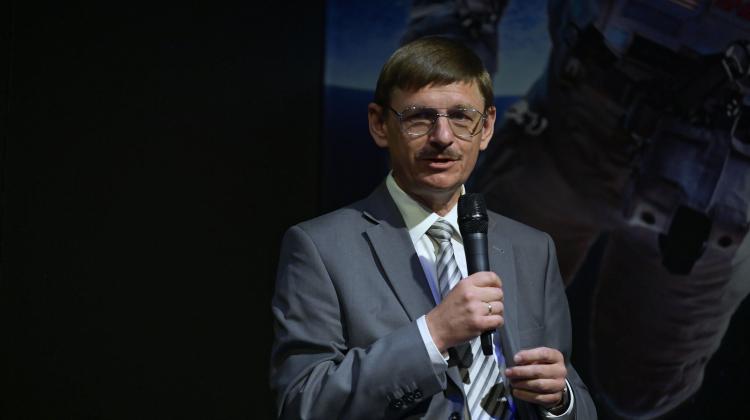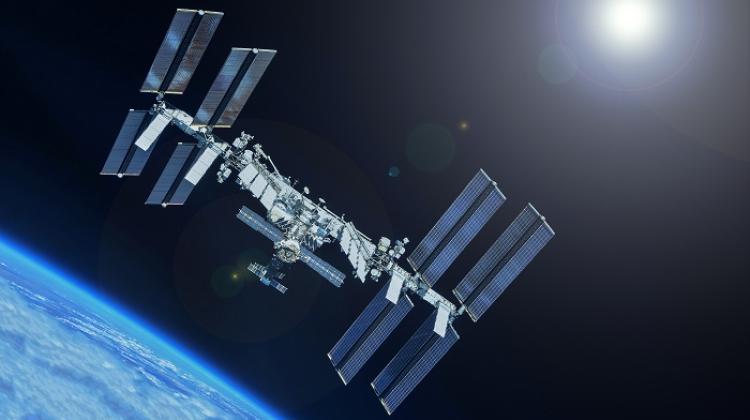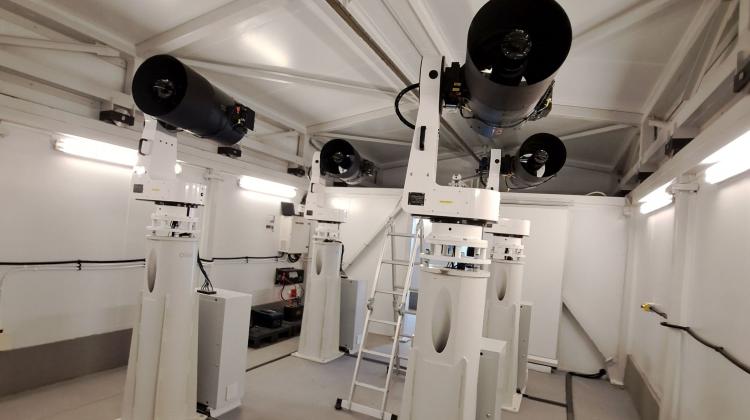POLSA President: Poland could launch satellites into orbit in two years
 15.09.2021. President of the Polish Space Agency Grzegorz Wrochna. PAP/Marcin Obara
15.09.2021. President of the Polish Space Agency Grzegorz Wrochna. PAP/Marcin Obara
Poland could launch satellites into orbit in two years and send a mission to the Moon in five-six years, President of the Polish Space Agency POLSA Professor Grzegorz Wrochna said in an interview with PAP.
'We are very seriously thinking about a technical mission to the Moon, where we would send a rover capable of collecting samples, with advanced control providing high autonomy', said Wrochna.
The head of POLSA pointed out that surveying the Moon in search of raw materials is currently a developing trend. 'I hope that Poland will also participate', he said.
In a more distant future, the acquisition of rare raw materials that are already being exhausted on Earth is also considered. This, however, will not become profitable earlier than in 20 years. 'Initially, space mining will primarily satisfy the current needs of the lunar bases', he added. According to Wrochna, Polish companies will definitely participate in the technical side of such projects 'by sending our own space missions and supplying robotic and research instruments for larger NASA or ESA missions'.
'We hope that we could send such a technical mission to the Moon in five-six years', said Wrochna.
According to Wrochna, NASA in cooperation with ESA and Russia together with China plan to launch permanent bases on the Moon. He added that maintaining such bases would require a variety of measures. 'They will need oxygen, which the Moon has a lot of, but in the bound form; water; fuels and materials to build bases from lunar raw materials so that they do not have to be transported them from Earth', he explained.
Wrochna believes that in 20-30 years, space mining could start production for the needs of our planet and raw materials mined on the Moon could be transported to Earth'.
He did not rule out sending a Polish astronaut to the Moon, although this would be a more distant perspective. He reminded about planned cooperation with NASA in this area. 'We have recently signed the Artemis Accords declaration that opens the door to such cooperation', he remarked. He added that as part of the Artemis NASA programme that assumes permanent presence of people on the Moon, Poland will strive for a significant participation. 'We will certainly supply research and robotic instruments because this is one of the leading specialisations of our space sector', said the head of POLSA.
In the coming years, the main emphasis of the Polish space sector will be on the use of the Earth's orbit to conduct business, he explained. According to Wrochna, 'in two years Poland could launching satellites into orbit'.
As he stated, 'the bottleneck of the space sector of all of Europe', are the satellite launch capabilities. 'We cannot launch rockets vertically from Poland because we have close neighbours, on whose lands a rocket could fall in the event of failure', he noted.
The head of the Polish Space Agency explained that horizontal launches are being considered using the air-launch technology - launching objects into space using a launcher attached to a specially adapted aircraft. Currently, European countries have relatively small capabilities in this area.
'This technology has already been mastered by several companies in the world, including Virgin Orbit. POLSA signed a letter intent on this matter with Virgin Orbit in mid-March. We will analyse the possibility of launching from Poland', he explained.
Wrochna pointed out that equipping an airport with the appropriate horizontal rocket launch infrastructure is the amount of $20 million, but in the first years we can use mobile infrastructure. 'A launch is the cost of several dozen thousand dollars for 1 kg of payload, which makes this technology very profitable and will contribute to the development of the market for such services', he said. According to Wrochna, the use of the horizontal launch technology would lower the barrier for Polish companies that build satellites.
'We have no ambition to build orbital rockets in the coming years, but our companies and institutes are working on sub-orbital flights - over 100 km outside the atmosphere', he mentioned. This is valuable because for a few minutes, when the engines are disengaged during the fall of such a rocket, there is virtually no gravity. This is needed to carry out various technical and biological experiments and for testing equipment.
'These a few minutes of microgravity are much cheaper than carrying out such experiments, for example, on the International Space Station. Companies that develop these technologies are thinking about a commercial provision of such time and space in microgravity conditions and hoping for a good business', he said.
PAP - Science in Poland, Magdalena Jarco
maja/ skr/ mk/ kap/
tr. RL
Przed dodaniem komentarza prosimy o zapoznanie z Regulaminem forum serwisu Nauka w Polsce.

















